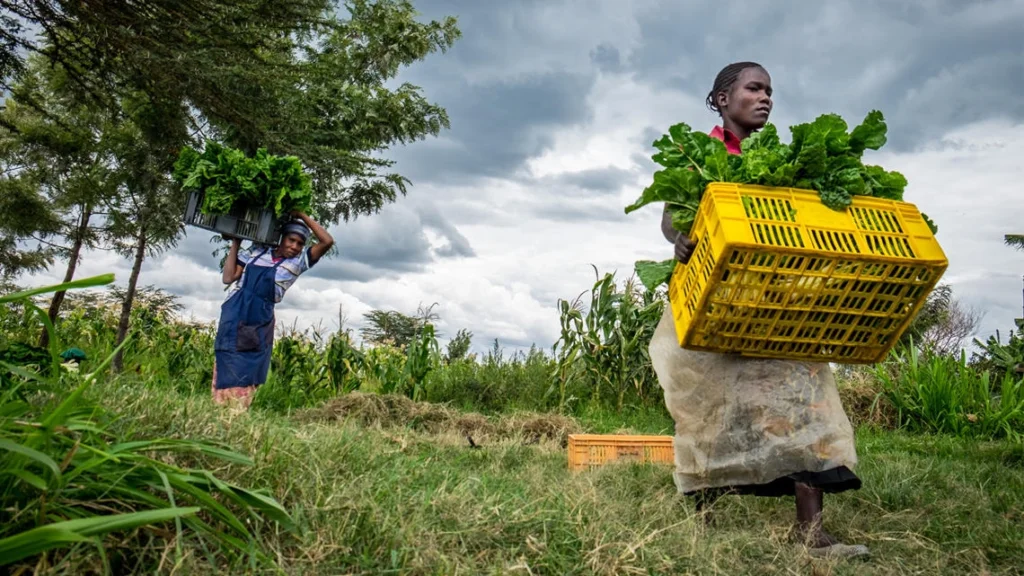Geneva, 7 January 2021 – The World Business Council for Sustainable Development (WBCSD) has released today at the second CEO consultation for the UN Food System Summit an issue brief exploring the barriers and opportunities that have arisen from COVID-19 and impacted food systems. Business support for building equity and resilience in all food and livelihood systems is urgent. This issue brief brings together lessons learned and best practices on how to build a more resilient, sustainable and fair food system for all, and it exposes a set of solutions for rapid response and long-term solutions for food system transformation.
As the pandemic started, WBCSD launched a response program, including the Vital Supply Chains project to understand the challenges arising out of COVID-19 for food supply chains and to identify ways for business to respond to these challenges collectively. This project has convened member companies, partner organizations and numerous experts to mobilize business towards mitigating the food system supply chain risks arising from COVID-19 – aligned with the pathways in WBCSD’s CEO Guide to Food System Transformation.
To be able to build on this new mindset and situation, WBCSD analyzed the food system before and after the outbreak of COVID-19 to assess where the biggest opportunities are in order to guide business to prioritize specific areas where collective action is needed to protect food supply chains and enable a resilient food system recovery.
This Vital Supply Chains issue brief is the outcome of the extensive work done by the team from March through September as part of WBCSD’s COVID-19 Response Program. This analysis and resulting recommendations are based on an extensive literature review and unique insights from our project teams, members and partners across the food and agriculture value chain in geographic hot spots. The issue brief identifies the weaknesses COVID-19 has exposed in an often already fragile food systems and highlights the need for greatly improved resilience. It further focuses on resilience and how business can lead food systems transformation to achieve healthy people and a healthy planet, while delivering the Sustainable Development Goals by 2030 and, considering the main disruptions exposed by the COVID-19 pandemic.
Diane Holdorf, Managing Director, Food & Nature, WBCSD: “Amid the economic recession resulting from the Covid-19 pandemic, a further 50 million people risk falling into extreme poverty as lockdowns and restrictions continue to decimate incomes, spike unemployment and put nutritious food out of reach for many people. Business has an urgent, critical role to protect people’s livelihoods and nutrition in the face of COVID-19 and advance collective efforts to build an equitable, sustainable and resilient food system for all.”
David Nabarro, Strategic Director, 4SD and Special Envoy of the World Health Organization for the COVID-19 response: “COVID-19 has been a great revealer of the inequities of our societies and the weak points in many of our vital supply chains. The pandemic has particularly highlighted the risks and disruptions to our food systems. Chronic hunger and food insecurity are doubling as a result of this crisis, threatening hundreds of millions of lives across the world.”
Gerda Verburg, Scaling Up Nutrition (SUN) Movement said: “COVID-19 has already, and will continue to have, a vast impact across food systems. The crisis has shown the vulnerabilities and at the same time the cruciality of vital supply chains. This brings the opportunity to prove that a systems approach and multi stakeholder collaboration will pave the way to a better future with a more resilient, sustainable and nutritious food system”.
Sara Farley, The Rockefeller Foundation said : “COVID-19 is a tremendous challenge, but also a wake-up call for the private and public sector alike to embed better values into the food system, so that it truly advances nutrition, sustainability, equity, and resilience.”
Related WBCSD work on COVID-19:
COVID-19 Rapid Response Platform
Principles for a Strong Response to COVID-19: Food Systems Security
Protecting nutrition security amid COVID-19
Rapid Response Program – Action Update & Priorities, May 2020
Rapid Response Program – Action Update & Priorities, June 2020
COVID-19: a dashboard to rebuild with nature
Building long-term business resilience – A Vision 2050 issue brief
The consequences of COVID-19 for the decade ahead
For more information, please contact:
Sylvain Maibach, Manager Communication Food & Nature
WBCSD news articles and insights may be republished in accordance with the Creative Commons Attribution-NonCommercial-NoDerivatives 4.0 International Public License, and in accordance with our Privacy Policy. All Content must be featured with due credits.
Outline
